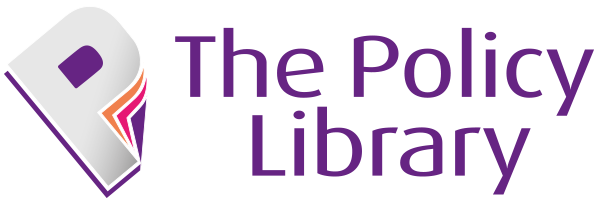You would think that one-on-one training would cost a fortune and be time-consuming to organise. Well, it isn’t! Our one-on-one tutor led interactive online training goes at precisely the pace required by each individual. It provides an opportunity to go over the learning content as often as required so every employee gets the optimum learning experience that’ll be retained and applied to keep your business safe and compliant.
At a fraction of the cost and fraction of management time than you’d expect, this health & social care online training has the added bonus of a minimal loss of productivity because it’s really efficient and flexible.
We offer courses in:
- Safeguarding
- Introduction to Safe Handling of Medicines
- Infection Control
- Understanding your Role in Care
- Dementia Awareness
- Mental Health Awareness
- End of Life Care
- Mental Capacity Act and Deprivation of Liberty Safeguards
- Positive Handling in Schools
- Nutrition and Hydration
- Person-Centred Care
- Your Personal Development
- Dignity and Privacy
- Prevent Duty
- Learning Disability Awareness
- Handling Information in a Care Setting
- Principles of Communication
- Epilepsy Awareness
- Fire Safety Training for Care Homes
- Equality, Diversity and Discrimination
- Data Protection in the Workplace
- Achieving Food Hygiene Rating Level 5
Safeguarding Training

These courses have been created because, first and foremost, each and every one of us has basic human rights. Chief among these is the right to be healthy, happy and treated well, regardless of race, age, gender or location. When these rights are abused in some way it’s wrong, and it is therefore vital that guidelines, policies and procedures are followed to enable everyone, without exception to live a life in which these basic values and rights are maintained and upheld.
Courses
- Safeguarding Children – £35
- Safeguarding Adults – £35
Introduction to the Safe Handling of Medicines

This Introduction to the Safe Handling of Medicines course will start by explaining the key terminology used when handling medicines. It then goes into detail about the roles of the people involved, some of the different groups of medicines, providing different levels of support to patients, infection control, label interpretation and much more.
Courses
- Introduction to Safe Handling of Medicines – £25
Infection Control

Infection prevention and control measures aim to ensure the protection of those who might be vulnerable to acquiring an infection… Ok but why is this important?
Well every year at least 300,000 people develop a Health Care Associated Infection. This has a huge impact on the patient, the staff and the institution it occurs in. Whereas if there is good infection prevention and control, patients will have better health and more independence.
This course will start by defining infection prevention and control and explaining the impact of good and bad infection control. It then goes into detail about, the legislation that applies to infection control, the different types of microorganisms, how bacteria are transmitted, the chain of infection, and much more.
Courses
- Infection Control – £25
Understanding your Role in Care

Social care is the provision of social work, personal care, protection or social support services to children or adults in need, or at risk, or adults with needs arising from illness, disability, old age or poverty.
This course will define social care and talk about why people choose it as a career and what its goals and objectives are. It will also cover job descriptions, person centred care, understanding code of practices and the basics of government legislation. Finally it will touch on dealing with conflicts at work.
Courses
- Understanding your Role in Care – £25
Dementia Awareness

Dementia is used to describe the symptoms that occur when the brain is affected by specific diseases and conditions. Dementia is a chronic progressive problem of cognition – which is failure of the brain’s functions. It affects people at different stages of life, it affects different parts of the brain and it affects it at different speeds.
This course is intended to give you an overview of the common types and symptoms of dementia as well as going into how it can affect the brain in different ways. It also covers strategies to use with clients with dementia and dealing with challenging behaviour. The course is intended for anyone who works with or around people that may be suffering with dementia.
Courses
- Dementia Awareness – £25
Mental Health Awareness

People often equate the words mental health with mental illness and there are many definitions of what mental health actually is. Mental health issues can happen to anyone despite social background, intelligence, gender or other factors.
This course explains the difference between mental health and mental illness. It covers the symptoms of a number of the most common mental illnesses so you will know what to look out for or what to expect if you are working with someone with one of these conditions. As well as providing some practical advice on how you can work effectively with these people.
Courses
- Mental Health Awareness – £25
End of Life Care

End of life care should be several things, compassionate, cost effective, holistic and effective. There are usually a number of people involved in the care of people at the end of their life and it can be a difficult process to be part of.
This course will provide you with information about what to expect, how to handle some of the emotions associated with this time, and working with the other professionals involved in end of life care.
Courses
- End of Life Care – £25
Mental Capacity Act and Deprivation of Liberty Safeguards (MCA and DOLS)

This course describes in detail the many facets and procedures of the Mental Capacity Act. This includes who the act affects, when it applies, how to assess capacity and the procedures that can be put in place in the home or workplace to ensure best practices are followed and people are treated fairly at all times.
Courses
- Mental Capacity Act & Deprivation of Liberty Safeguards – £25
Positive Handling in Schools

Positive Handling is a very serious subject. Knowing when and how to act in a difficult situation can be the difference between a positive outcome and a potentially career ending prosecution.
This course will start by looking at some examples and statistics which highlight the seriousness and extent of aggressive pupil behaviour, it will then go on to explain how you can identify the stages of aggression and provide some tips on how you could de-escalate a pupil before they lash out. It also looks at where the law stands on this subject and finally best practice in theory if you ever do need to restrain a pupil.
Courses
- Positive Handling in Schools – £25
Nutrition and Hydration

This course will start by defining the various terms used when talking about nutrition and hydration in care environments, the basic elements of nutrition and eating a healthy balanced diet, identify the reasons why vulnerable people might suffer with dehydration and the tools you can use to identify people that are at risk of malnutrition and the steps you can take to deal with this condition.
Courses
- Nutrition and Hydration – £25
Person-Centred Care

This course will give you an understanding of person centred approaches for care and support, and how to implement a person-centred approach in an adult social care setting.
It starts by explaining what we mean by person centred care and where this term originated. It then goes on to analyse the values represented by person centred care and explains why care should be as much as possible tailored to each service user. Finally it will give you an overview of care plans, daily reports, the importance of obtaining consent and much more.
Courses
- Person-Centred Care – £25
Your Personal Development

The course will start by looking at the way standards are set, monitored and regulated for social care organisations and workers throughout the UK. It then goes on to cover the codes of practice and legislation, reflecting on your work to ensure continued improvement, communication, feedback and much more.
Courses
- Your Personal Development – £25
Dignity & Privacy

The course will start by defining dignity and privacy within the healthcare sector, and will explain how the two are quite often linked. It will then go on to give you a range of useful professional tips about setting up the right working relationship with your service users, and discuss some of the issues that can arise when dignity and privacy are not respected.
Courses
- Dignity & Privacy – £25
Prevent Duty

Intelligence indicates that further terrorist attacks in our country are ‘highly likely’. Experience tells us that the threat comes not just from foreign nationals, but from terrorists born and bred in Britain. It is therefore vital that our counter-terrorism strategy contains a plan to prevent radicalisation and stop would-be terrorists from committing mass murder. The Prevent strategy, published by the Government is part of the overall counter-terrorism strategy.
This course starts with an overview of the Government’s Prevent strategy, and then looks at some of the reasons people become extremists. It goes on to cover the objectives of the Prevent strategy, how to base your actions on a risk based approach, what to do if you are concerned and much more.
Courses
- Prevent Duty – £35
Learning Disability Awareness

Learning disabilities, however they are acquired, are lifelong. They are neurological disabilities and as such affect how an individual understands and remembers information, how they learn and communicate. People can be born with learning disabilities or they may acquire them later in life.
There are many differing types of learning difficulty and they can exhibit in many different ways and with many different characteristics. This course will start by giving you an overview of some of the common types and causes of learning disabilities and how they affect people. It will touch on how a person centred approach to care will get the best results and look at how management must perform, and at the needs of the individual. It will also discuss overcoming the stigma attached to learning disabilities and much more.
Courses
- Learning Disability Awareness – £25
Handling Information in a Care Setting

When working in a care setting it is so important to build positive relationships with care users. Confidentiality and the correct handling of personal information are vital for trusting relationships and a breach in this may lead to a service user becoming unwilling to cooperate with their care providers.
This course provides an introduction to the concept of handling information in care settings. At the end of the course you will understand the need for secure handling of information and you will know how to access support if you have any questions regarding access to information. The course will cover the important role confidentiality plays in developing trusting relationships with the people in your care and it will define key terms such as ‘need to know’ and ‘consent’. It also touches on the legislation that is in place relating to the handling and storing of information and the obligations each person has under these laws.
Courses
- Handling Information in a Care Setting – £25
Principles of Communication

When working in the adult social care sector, communicating is essential to develop your understanding of a service user’s needs, so you can provide them with the support they require.
This course covers some of the different ways of communication, how to identify barriers to communication and how to reduce these, making sure the person you are communicating with understands what you are communicating, how to get help with communication issues and much more.
Courses
- Principles of Communication – £25
Epilepsy Awareness

Epilepsy is a neurological condition that affects the brain and the nervous system and is covered by the Equality Act 2010. The condition can affect people for only a portion of their life or it can be lifelong. Because of the varied nature of the condition an awareness of epilepsy and the actions you can take if you are present during a seizure is incredibly useful for those who work in health and social care.
This course will give you an overview of epilepsy. It lists the methods of diagnosis, what a seizure is and how the brain can be affected. It will introduce some possible seizure triggers and describe what to do when someone has a seizure. It will also discuss some of the treatments offered to people with epilepsy and provide practical advice on what you can do if you witness someone having a seizure.
Courses
- Epilepsy Awareness – £25
Fire Safety Training for Care Homes

Current legislation, The Regulatory Reform (Fire Safety) Order 2005, applies to all workplaces regardless of the number of employees and requires employers to provide adequate training in fire awareness for all members of their staff.
Our Fire Safety Training courses for care homes cover the same content as a standard Fire Safety courses with additional content tailored specifically for employees that work in care homes.
Courses
- Basic Fire Safety Awareness for Care Homes – £25
- Fire Marshal for Care Homes – £35
Equality, Diversity and Discrimination

We’ve all heard and used the words ‘equality’ and ‘diversity’ before but what do they actually mean and how do they affect you as an employer or employee? Well if you take the words on their own they are actually quite different, equality is the state of being equal, especially in rights and opportunities. Diversity is the state of being different or varied.
However these 2 things should not be seen as opposite to each other, after all people can be different but they still have the same rights. When it comes to places of work there is legislation in place to ensure that we all meet our responsibilities in relation to equality and diversity… And one way to make sure we meet these responsibilities is through training.
Courses
- Equality, Diversity and Discrimination – £35
Data Protection in the Workplace

If you or your organisation handles personal information about individuals you have legal obligations to protect that information. The benefits of good data safety are numerous and include, good business practice, the protection of people’s rights and the protection of your organisations reputation.
In recent years some companies and individuals have experienced serious legal consequences for data protection breaches and this highlights why it is so important to get it right.
Courses
- Data Protection in the Workplace – £35
Achieving Food Hygiene Rating Level 5

In December 2008 the Food Standards Agency agreed a National Food Hygiene Rating Scheme. It is now running in all areas of Wales, Northern Ireland and in 99% of England.
In practice the rating scheme is designed to ensure that businesses that are broadly compliant with food law and are managing food safety risks will receive a rating of three … and those who are managing the risk well will receive a rating of four or five. However, significant lapses in any of the scoring criteria can also have a significant effect on the rating.
This course is intended to give you an overview of how the National Food Hygiene Rating Scheme works, what the scoring criteria are and how these are assessed by the inspectors, the appeals process, the Safer Food Better Business management system, E-Coli and concludes with some practical advice for ensuring your premises gets the best score possible.
Courses
- Achieving Food Hygiene Rating Level 5 – £35
